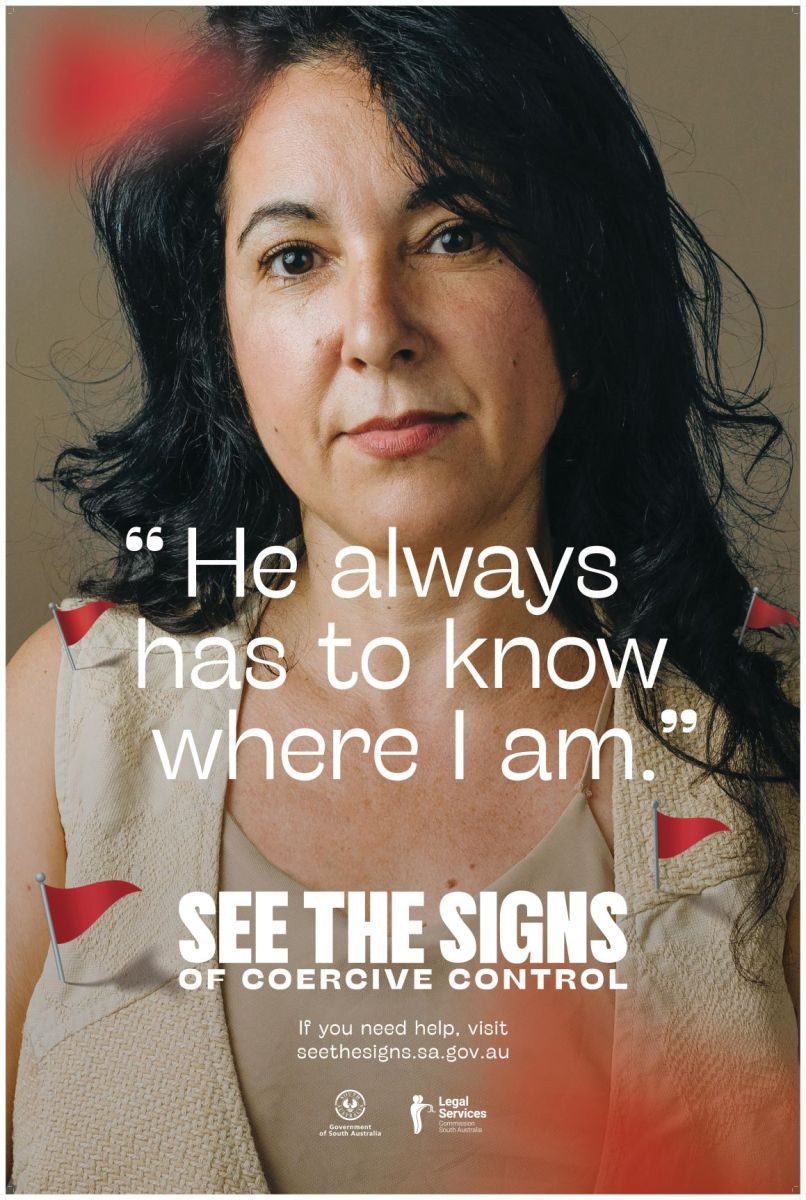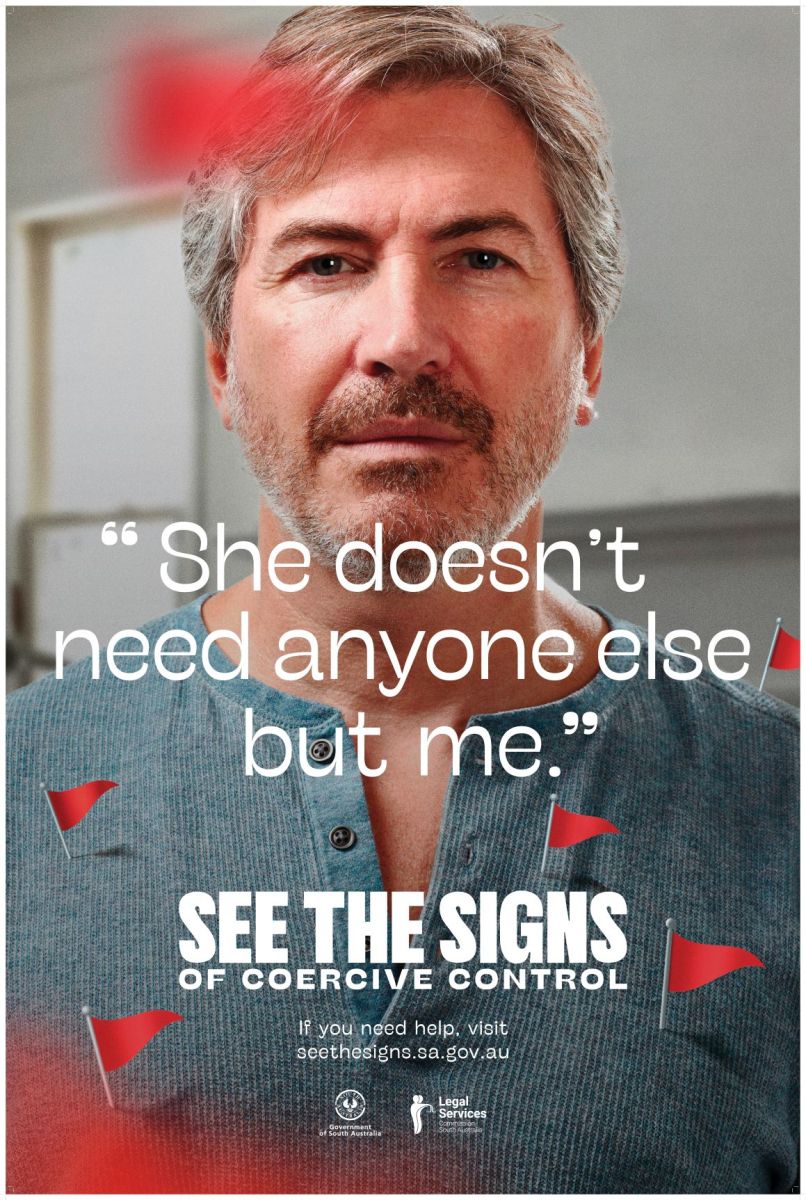

Why do people use coercive control?
Have you experienced coercive control?
Community legal education sessions
Coercive control is an insidious form of domestic violence that involves tactics of emotional and mental abuse that undermine the victim's autonomy and sense of identity and worth.
It is a pattern of behaviour that can involve:
Despite the significant harm through isolation, subordination, humiliation and loss of liberty caused by coercive and controlling behaviours, victims/survivors are likely to downplay the impact of these controls and are unlikely to seek help if they have not also experienced physical or sexual abuse.
People use coercive control because they want to have power or control over another person.
Coercive control can happen in all kinds of relationships — no matter your gender, how you define your sexuality, your background, or who you are as a person.
You are not alone. What happened to you is not your fault. Once you have realised you are experiencing coercive control, you may want to seek help.
Intervention orders are available to stop abusive behaviours from occurring.
An intervention order is a legal measure designed to protect you from various forms of harm, including coercive control.
An intervention order is an order from police or the Magistrates Court to stop abusive behaviours from occurring. Intervention orders can be obtained to stop all forms of abuse, including coercive control.
There do not need to be any criminal charges laid by police for a Magistrate to grant an intervention order in South Australia. Intervention orders may be granted when it can be shown that a person is at risk of abuse should an intervention order not be granted. Any person who is experiencing or at risk of domestic and family violence, including coercive control, should seek legal advice on whether an intervention order can assist them in stopping abuse from occurring.
For more information, view our Applying for an Intervention Order factsheet. We also have information about family violence and intervention orders in video format in both English and Auslan: Abuse Prevention Accessible Videos.
The free Legal Helpline is the starting point for getting legal information and legal advice.
Call 1300 366 424 between 9am – 4.30pm, Monday to Friday.
Legal Services also operates the Women’s Domestic Violence Court Assistance Service (WDVCAS), which supports women to apply for, vary, or revoke an intervention order.
For further information visit the WDVCAS website or telephone the service on 1800 246 642.
Are you:
For more information and to get the help you need visit seethesigns.sa.gov.au
Legal Services has a proud history of educating the South Australian community through the delivery of community legal education sessions. We aim to promote an understanding by the public of their rights and responsibilities under the law and how to access legal and other resources in the community, if and when the need arises.
We provide legal information sessions on a range of topics including family violence and coercive control.
To express interest in a community legal information session for your community group on these topics, please email us at cle@lsc.sa.gov.au.
Legal Services is seeking to increase the awareness of coercive control and the patterns of behaviour which constitute a coercive and controlling relationship through the development of the See the Signs of coercive control campaign.
Red flags are commonly used symbols of risk or danger – particularly within relationships. But with coercive control the signs can be subtle, shrugged off, or ignored. The See the Signs of coercive control campaign highlights, with red flags, the patterns of behaviour which constitute coercive control.
30 second female video
30 second male video
15 second female video
15 second male video
30 second female radio ad
30 second male radio ad

Female campaign poster with the caption "He always has to know where I am." See the signs of coercive control. If you need help, visit seethesigns.sa.gov.au

Male campaign poster with the caption "She doesn't need anyone else but me." See the signs of coercive control. If you need help, visit seethesigns.sa.gov.au
The Commonwealth Attorney-General's Department has put together some relationship resources for young people.